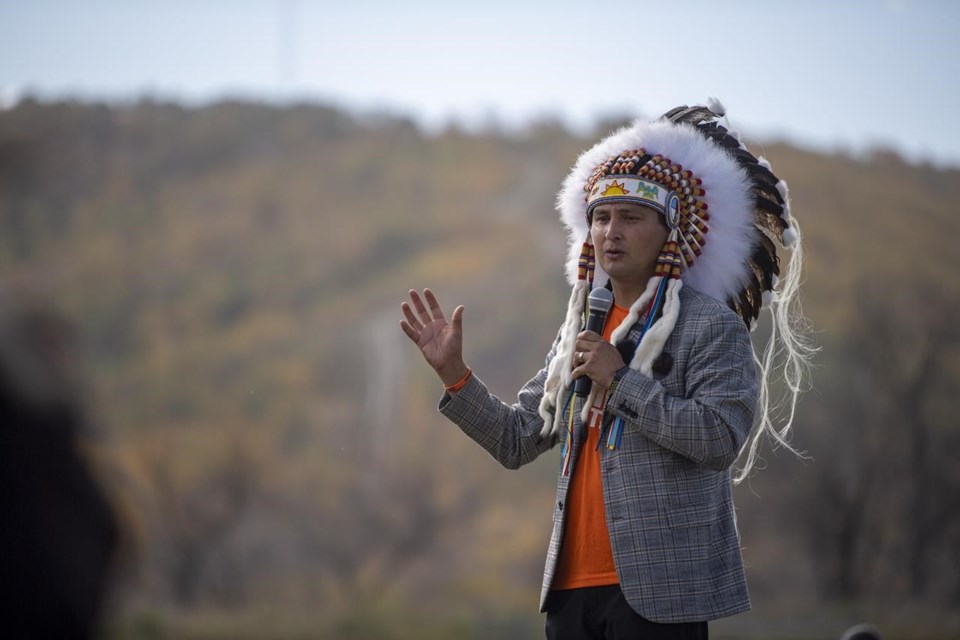A chief in Saskatchewan who became well-known after his First Nation found what are believed to be 751 unmarked graves at the site of a former residential school will lead a new committee for sharing documents connected to the institutions.
The federal government says Chief Cadmus Delorme of Cowessess First Nation will be the chairperson of the residential school documents advisory committee.
The committee is to develop recommendations on the identification and sharing of documents with the Winnipeg-based National Centre for Truth and Reconciliation.
A news release says the committee is to include survivors, community members and federal and expert representatives and that Delorme’s mandate is to ensure Indigenous voices are reflected in all decisions.
Canada has already provided more than 1.5 million documents and images to the centre, as well as school narratives and collections from religious groups.
Crown−Indigenous Relations says the department is still identifying documents that weren’t previously shared.
"Today many local communities, ad hoc committees and First Nations are leading the way in the validation of unmarked graves attached to former residential schools," Delorme said in the release Tuesday.
"This advisory committee's goal will help by empowering the National Centre for Truth and Reconciliation to house records many are seeking to help in their healing journey."
Delorme announced earlier this month that he would not seek a third term as chief of the First Nation about 140 kilometres east of Regina.
His position will be independent of the government, the news release said.
Delorme became known around the world in 2021 with the discovery of potential remains near the former Marieval Indian Residential School.
Cowessess made headlines again when the first First Nation signed an agreement with Ottawa that returns jurisdiction over children in care to the community.
Crown−Indigenous Relations Minister Marc Miller issued a directive to establish the documents advisory committee later that year.
"There can be no reconciliation without first uncovering the truth, and sharing relevant documents will help us do this," Miller said in the news release.
Stephanie Scott, executive director of the National Centre for Truth and Reconciliation, said in the release that Cowessess First Nation played a central role in bringing global attention to unmarked graves and thousands of missing children who never made it home.
"We welcome Chief Delorme's leadership in this new role," Scott said.
This report by The Canadian Press was first published Feb. 21, 2023.
Kelly Geraldine Malone, The Canadian Press



